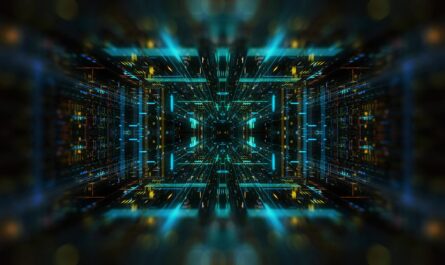Artificial intelligence (AI) took center stage in 2023, marking a significant milestone in the technology’s development. However, despite its progress, AI still has a long way to go before it can match the visions depicted in science fiction movies of human-like machines.
One of the key events that catalyzed the AI fervor in 2023 was the Artificial intelligencea chatbot that showcased recent advancements in computer science. Although not everyone fully understood how it worked or its practical applications, it provided a glimpse into the capabilities of AI.
Renowned AI scientist, Fei-Fei Li, described 2023 as an inflection moment in history, where the technology experienced profound changes and triggered a public awakening. However, she also noted the messy nature of this rapidly evolving technology.
Throughout the year, people grappled with understanding what AI truly is, how it can be effectively utilized, and its impact on various aspects of society. This exploration encompassed the good, the bad, and the ugly, leading to a broader comprehension of the potential of AI.
Early in 2023, a wave of panic ensued as schools around the world began blocking ChatGPT, after students started relying on the chatbot to compose essays and answer take-home tests. The AI models, such as ChatGPT, work by predicting the next word in a sentence based on patterns learned from vast collections of human-written works. Although they often make factual errors, their outputs are so natural that they sparked curiosity about the future of AI and its potential for deception.
Concerns escalated as generative AI tools, capable of producing not only text but also images, music, and synthetic voices, threatened the livelihoods of professionals in creative fields such as writing, drawing, music, and coding. This led to strikes by Hollywood writers and actors, as well as legal challenges from visual artists and bestselling authors.
Some esteemed scientists in the field highlighted the potential risks of unchecked AI progress, warning that it could surpass human intelligence and pose existential threats. However, other scientists dismissed these concerns as exaggerated and emphasized more immediate risks associated with AI.
By spring, AI-generated deepfakes, some incredibly convincing, had infiltrated U.S. election campaigns, making it increasingly difficult to distinguish between real and fabricated content. This technology also blurred the line between reality and fabrication in war footage from Ukraine and Gaza.
Towards the end of the year, the AI crises shifted focus to the maker of ChatGPT, San Francisco startup OpenAI, which faced internal turmoil due to its charismatic CEO, and to a government meeting in Belgium, where exhausted political leaders from the European Union finalized the world’s first major AI legal safeguards.
Although the new AI law will take time to take full effect, it signifies a significant step toward regulating AI and protecting against potential risks. Other legislative bodies, including the U.S. Congress, are also considering their own AI regulations but are still far from enacting them.
In 2023, commercial AI products showcased technological breakthroughs that were not previously possible. However, industry analysts, such as Gartner, stated that the current generative AI trend is at its peak hype, with excessive claims about its capabilities by vendors and producers. Gartner likened this stage to a rollercoaster, where expectations reach their peak before plunging into a trough of disillusionment, eventually settling into a more realistic perspective.
Notably, leading AI developers are driving certain applications based on their current product lines, such as search engines or workplace productivity software. However, the adoption of AI technology in society ultimately stems from grassroots movements rather than top-down approaches by tech giants like Google, Microsoft, Amazon, or Apple.
It is essential to recognize that AI commercialization is not a new phenomenon. Preceding waves of AI development led to significant advancements in computer vision, speech recognition, and virtual assistants like Siri and Alexa. However, the current wave is considered the most substantial yet, with vast potential but also accompanying dangers.
In 2024, major national elections worldwide, including the U.S. and India, face potential challenges as AI-generated deepfakes could flood the political landscape. Moreover, in the long term, AI advancements in language understanding, visual perception, and planning capabilities could enable the vision of a digital assistant deeply integrated into our lives. However, this would come with significant risks to personal privacy and data security.
Overall, 2023 marked a turning point in society’s engagement with AI, where its capabilities and challenges became more apparent. As the technology continues to evolve, it is crucial to strike a balance between innovation and responsible implementation to harness AI’s potential for the benefit of humanity.



